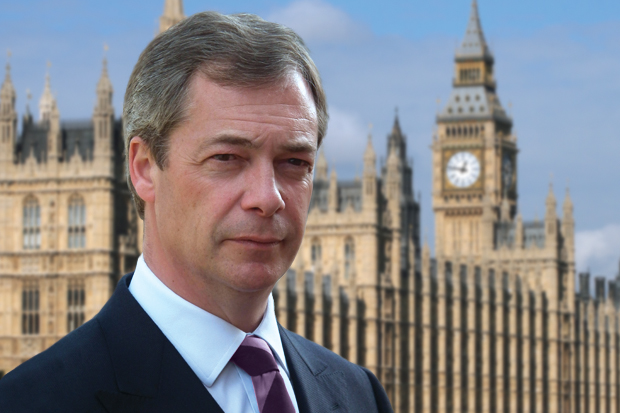This week Nigel Farage decamped his self-proclaimed People’s Army to the Yorkshire town of Doncaster. Starting days after a somewhat lacklustre Labour Party conference, the UKIP gathering was the last big opportunity to set their stall out not only for the upcoming by-elections in Clacton and Heywood but also the General Election in 2015.
The choice of location, Ed Miliband’s own constituency no less, was a telling portent of what turned out to be the most open challenge to Labour’s hold on the urban North since the aberration of the Thatcher years.
Only last year Ed Miliband was mocking David Cameron, accusing him of staying awake at night worrying about his UKIP problem, and it’s true that the Tories are still suffering disproportionately in terms of activists, members and supporters jumping ship, along with two MPs no less.
The image of UKIP as an ideologically pure Tory Party still holds some sway. But tide is turning. For truth is UKIP have had their fill of retired colonels from the Home Counties. The UKIP high command have belatedly realised that their best parliamentary election results have come in the urban north, not the rural south.
Labour left a huge gap in the market when in the late 80s and early 90s they began to target the socially liberal and cosmopolitan middle class, safe in the knowledge that their core vote in the towns and cities of northern England had nowhere else to go. To Labour’s credit, this cynical strategy won them three consecutive elections, but they’ve been painfully slow to appreciate open goal they’ve presented to UKIP.
To capitalise on this newly discovered vein of potential support, UKIP have ditched the last vestiges of soft libertarianism and free marketeering in favour of a heady mixture of social conservatism and welfare statism with a distinctively nativist feel.
UKIP strategists have astutely identified what the detached and cosseted professional political class which run Labour can’t see; that the white working class is Right Wing on issues like crime, immigration, defence, the unemployed and Europe, but also quite Left Wing on the NHS, big business and globalisation.
And so it should come as little surprise that the 2014 UKIP Conference was strong on the sentiment of entitlement; a shopping list populist treats like guaranteed jobs for veterans, NHS exemption from the TTIP, scrapping inherence tax, rent controls, and free hospital parking. Tellingly, the flat tax, once the totem around which Thatcherites and the libertarians rallied, has been well and truly put to bed.
To pay for all this, as well as the red meat thrown to social conservatives (more prisons, 11,000 more soldiers) is a peculiar mix of taxes and cuts. VAT exceptions for tourists would be scraped, an odd policy at a time when already struggling British retailers are competing with Frankfurt and Paris for the disposable income currently languishing in the deep pockets of Asia’s nouveau riche.
Even a so-called Luxury Tax was rumoured though later quashed. Areas identified for cuts are also informative. ‘Waste’, ‘quangos’, ‘Europe’ and of course ‘foreign aid’ are to UKIP what Bankers’ Bonuses are to Labour; an endless pot money taken back from a faceless and undeserving ‘them’. Like Labour, UKIP are keen to convey a narrative that they are on the side of ordinary British people, the sword and shield of struggling families.
Will it matter? In 2015, probably not. UKIP are starting from such a low base in terms of campaign teams, funding and experience that it’s unlikely they’ll get more than a handful of MPs returned to Westminster.
Indeed, some polls say they may not get any. However they will get a lot of second places, and where they come a close second in 2015 is where they’ll be setting their sights in 2020.
Labour know deep down there’s very little of the Coalition’s spending plans they’ll be able to fundamentally change. Just this week Ed Balls admitted child benefits would be frozen. The challenge then for UKIP is to manage expectations for 2015 and focus on tearing into Labour’s core vote as Ed Miliband dithers as Prime Minister and Chancellor Ed Balls is forced to maintain the Tory course of austerity and Public Sector cuts.
Nigel Farage has rolled his tanks straight out of Doncaster and parked them Labour’s front lawn, and it’s going to take more than weak talk of ‘togetherness’ to shift them.

COMMENTS
Please let us know if you're having issues with commenting.